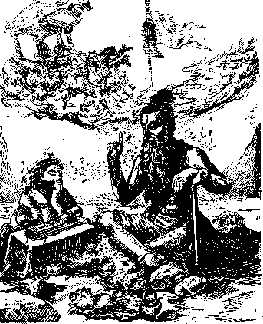Balagokulam Guide
Festivals
Biographies
Hindu Dharma
Other Topics
Sangh Prarthana
Ekata Mantra
Shlokas
Bhajans
Sangh Geet
Skits
|
|
Full Moon Day of Aashaadha (July)
Guru means teacher. Hindus respect Guru as God.
This day is also known as Vyaasa Poornima. It was the great sage Vyasa, who classified the accumulated spiritual knowledge of the Vedas under four heads - Rig, Yajur, Saama and Atharva. To him goes the credit of composing the authentic treatise of Brahma-sootras to explain the background of Vedas. He also wrote the eighteen Puranas, the stories of our great heroes and saints, to carry the spiritual and moral teachings contained therein to the common masses.
 The greatest of epics of all times and of all climes - Mahaabhaarata - embodying the immortal song of God, the Bhagavad Geeta, also in it, is also the priceless gift of Vyasa. The Bhaagavata, the thrilling and devotional story of Sri Krishna, was also his contribution. Offering of worship to him signifies the worship of all the teachers of all times. The greatest of epics of all times and of all climes - Mahaabhaarata - embodying the immortal song of God, the Bhagavad Geeta, also in it, is also the priceless gift of Vyasa. The Bhaagavata, the thrilling and devotional story of Sri Krishna, was also his contribution. Offering of worship to him signifies the worship of all the teachers of all times.
The Guru in the Hindu tradition is looked upon as an embodiment of God himself. For, it is through his grace and guidance that one reaches the highest state of wisdom and bliss. "My salutations to the Guru who is Brahma, Vishnu and Maheshwara. The Guru is Parabrahma incarnate"
Gururbrahmaa gururvishnuh gururdevo Maheshwarah |
Guruh-saakshaat parabrahma tasmai shrigurave namah ||
Various have been the great sages and saints who have been the spiritual and religious preceptors to countless individuals down the centuries. But is there any one who can be looked upon as the preceptor for the entire Hindu people - for all their past, present and future generations ? Obviously, no individual can play that role. A human being is after all mortal and, however great, has his own limitations. He cannot be a permanent guide for all time to come. Thus the sacred Bhagava Dhwaj, which represents all the Gurus, is worshipped as the Guru of the entire Hindu society.
It is an ancient as the Hindu people themselves. It has flown over the hermitages of the seers and sanyaasins and also over the celestial palaces of emperors. It has flown triumphantly over the battlefields of freedom struggle and has symbolized the immortal spirit of freedom in the Hindu mind. It is the one supreme symbol held in universal reverence by all sects and castes, and all creeds and faiths of the Hindu people. It is in fact the greatest unifying symbol of the entire Hindu world.
The color of the Bhagava Dhwaj - the saffron, depicts sacrifice and service. The flames rising from the yajna are saffron in color and indeed reflect this spirit.
Back to Festivals
|
|

